Don’t Fall for it: How to Spot and Avoid CRA Scams
Table of Contents
Introduction:
The Canada Revenue Agency (CRA) is responsible for collecting taxes and administering tax laws, but unfortunately, scammers often use the CRA’s name and reputation to trick people into giving away their money or personal information. These scams can take many forms, from fake phone calls to phishing emails. In this blog post, we’ll explore some of the most common CRA scams and share tips on how to protect yourself.
Fake Phone Calls:
One of the most common CRA scams is fake phone calls. These are calls from individuals pretending to be from the CRA, who demand immediate payment of a supposed tax debt. They may also threaten arrest or legal action if the supposed debt is not paid immediately. The CRA will never demand immediate payment over the phone and will never threaten arrest or legal action. If you receive a call like this, hang up and report it to the CRA and the Canadian Anti-Fraud Centre.
Phishing Scams:
Phishing scams are another common form of CRA scam. These are fake emails or messages that are designed to look like they are from the CRA, but they are actually from scammers trying to steal your personal information. They may ask for your personal information such as your social insurance number, credit card numbers, or online banking login credentials. The CRA will never ask for personal information through email or text message. If you receive an email or message like this, do not click on any links or enter any information and report it to the CRA and the Canadian Anti-Fraud Centre.
Fake Websites:
Another scam to be aware of is fake websites that impersonate the CRA. These websites may look like the official CRA website, but they are designed to steal your personal information. To avoid falling victim to this scam, always ensure that you are on the official CRA website by typing the web address directly into your browser or by using a bookmark that you have saved.
Conclusion:
The CRA plays an important role in collecting taxes and administering tax laws, but it’s important to be aware of the scams that use the CRA’s name to trick people into giving away their money or personal information. By being aware of the most common CRA scams and taking steps to protect yourself, you can avoid becoming a victim of fraud.
If you receive a phone call, email, text message or visit a website that you suspect to be a scam, do not give out any personal information and report it to the CRA and the Canadian Anti-Fraud Centre.
By following these tips, you can protect yourself from CRA scams and ensure that your personal information remains safe.
Further reading – http://Further reading – https://www.canada.ca/en/revenue-agency/corporate/security/protect-yourself-against-fraud/scam-alerts.html













